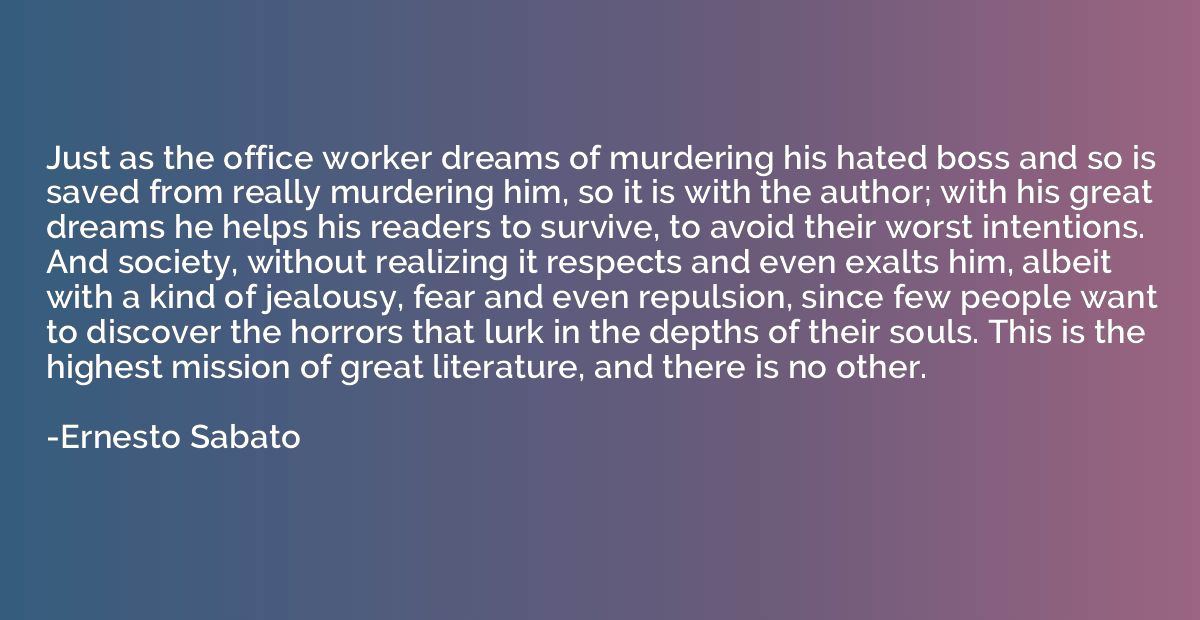Ernesto Sabato Quotes
A collection of quotes by Ernesto Sabato.
Ernesto Sabato (1911-2011) was an Argentine writer, painter, and essayist renowned for his impactful literary works and profound philosophical insights. Born on June 24, 1911, in Rojas, Buenos Aires, Sabato studied physics at the Universidad Nacional de La Plata before pursuing a doctorate in physics and mathematics in Paris. However, his scientific career soon gave way to his true passion for writing.
Sabato's literary career began in the 1940s when he published his first novel, "The Tunnel" (El túnel). This psychological novel explores the tumultuous psyche of a painter named Juan Pablo Castel, delving into themes of love, obsession, and existential angst. The success of this novel established Sabato as a prominent voice in Latin American literature.
Over the years, Sabato produced notable works such as "On Heroes and Tombs" (Sobre héroes y tumbas) and "The Angel of Darkness" (Abaddón el exterminador). These novels further showcased his unique writing style, characterized by introspective narration and complex psychological explorations. Sabato's profound philosophical musings often questioned the human condition, the role of art, and the darkness of totalitarian regimes.
Outside his literary pursuits, Sabato actively engaged in political and social causes, opposing the military dictatorship in Argentina and advocating for human rights. In 1984, he was appointed by President Raúl AlfonsÃn to chair the National Commission on Disappeared Persons (CONADEP), which aimed to investigate and document the human rights violations committed during the dictatorship.
Ernesto Sabato's contributions to literature and activism made him a revered figure in Argentina and beyond. He received numerous accolades throughout his career, including the Miguel de Cervantes Prize in 1984, one of the highest recognitions for Spanish-language literature. Sabato died on April 30, 2011, leaving behind a legacy of thought-provoking literature and a commitment to the pursuit of justice.



